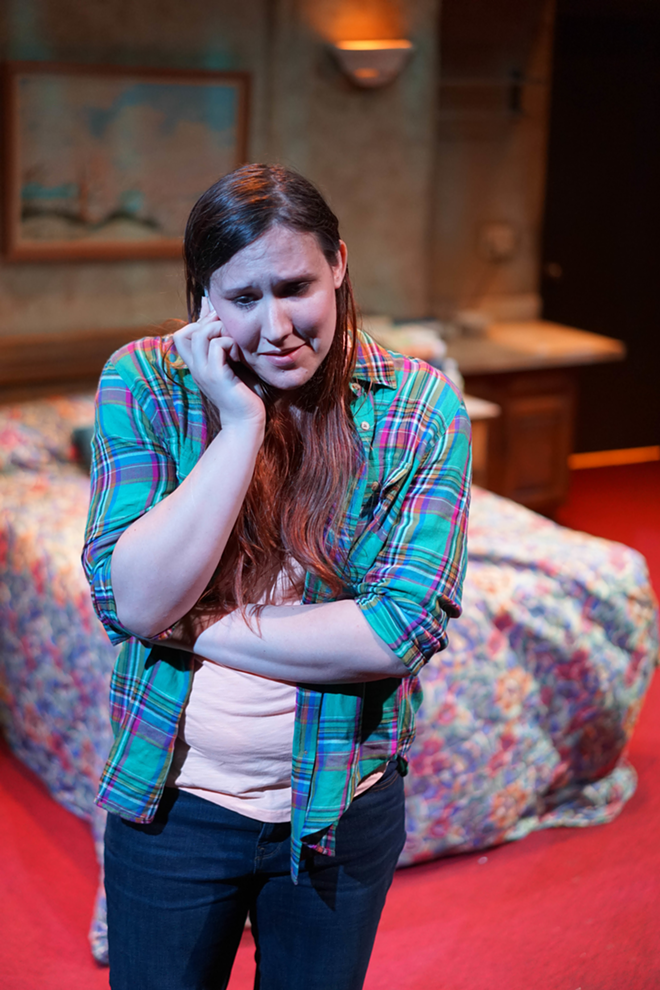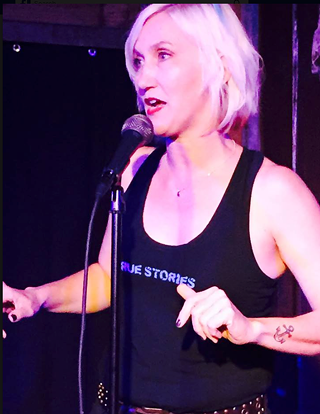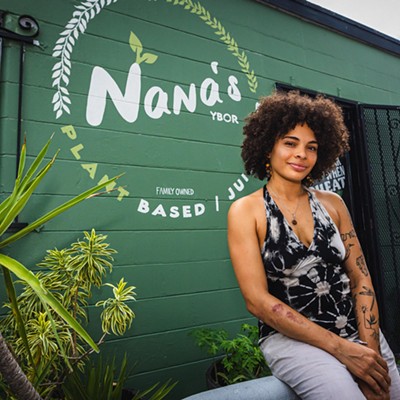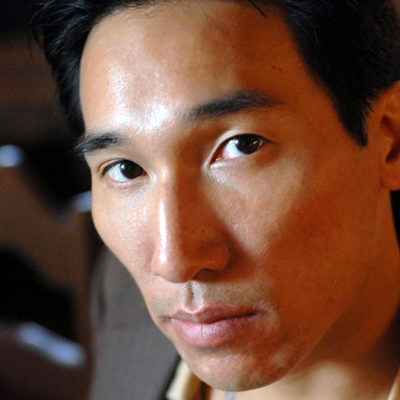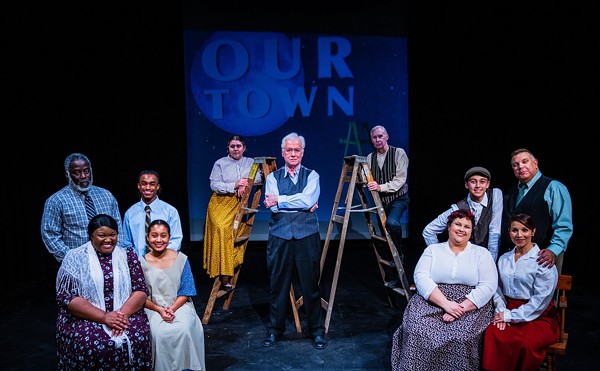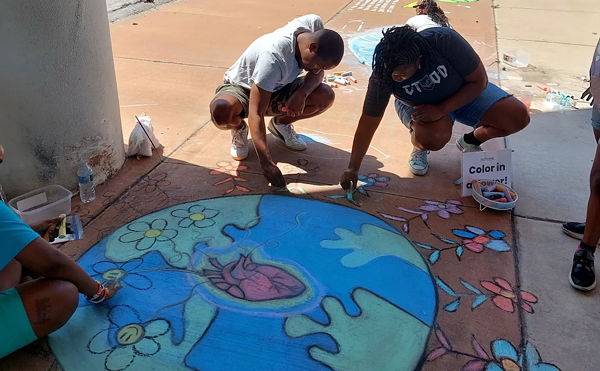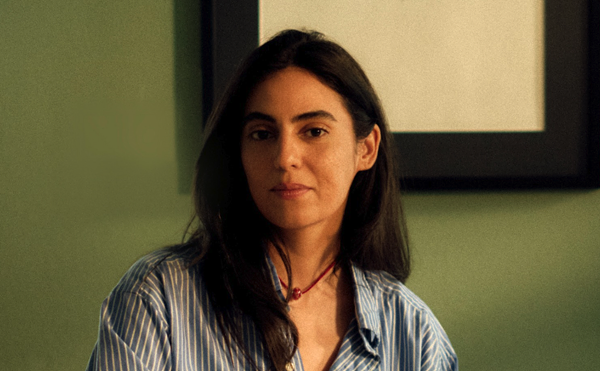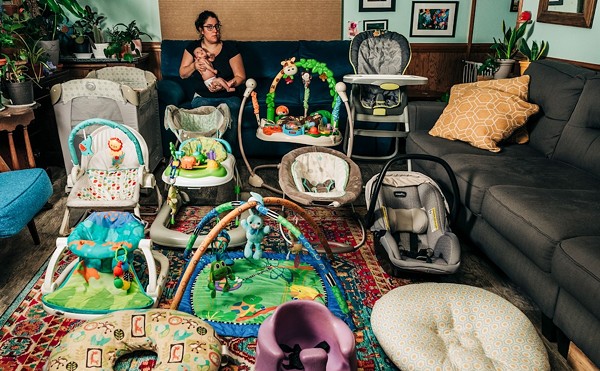In folklore, your true name has magical powers, so it's a secret. Playwright Natalie Symons is likewise full of mystery when she talks about her latest work, Naming True, which has its world premiere at Sarasota's Urbanite Theatre on June 6. Given the subject matter — in the play, a transgender teen and a dying woman meet up in a Florida motel room — it's not so surprising. But as you'll see from our interview, creating this play has helped Symons, who's also an actress and novelist and lives with her husband in St. Pete, with giving zero fucks.
Your world premiere is in Sarasota, and the action takes place at a Florida motel. Is there something particular about Florida that inspired this work?
Without giving anything away, one reason the play was set in a remote Florida location was to utilize the element of turbulent, unpredictable weather in order to propel the story. But the main reason it’s set in the Florida panhandle is a plot point that I don’t want to spoil.
What is autobiographical about Naming True?
There is nothing that’s autobiographical as much as it explores questions that I wrestle with. One of the themes that runs through the play is the question of how it is that we forgive ourselves and let go of guilt. Or if that’s even possible. I think there is a tendency in all of us, whether it’s conscious or unconscious, to hold ourselves more accountable than we do others, and the concept of forgiving ourselves is not even something to be considered. Grief and guilt are deeply entangled emotions and it might sometimes be impossible to separate one from the other. Maybe there’s a propensity to cling to guilt in order to hold onto the past, or rather, the people in our past.
Is there anything about the play that’s been taken directly from the news?
The inspiration for Amy’s character came from a news story a few years ago about a young transgender girl and her relationship with her mother while she was transitioning. Since I wrote early drafts of the play two years ago, transgender voices are much more part of the national conversation. What I’m excited about is that we’re beginning to see more trans writers, actors and artists infusing the theatre arts with perspectives that we haven’t seen before. Part of the reason I love the theater is because it has the ability to bring the unconscious into consciousness and to hold a mirror up to our collective experience, our human story. I’m so eager to see how these voices that have been largely disenfranchised will change the landscape of American theatre.
What was the hardest part of writing these characters?
The characters have always been very clear, even from the first draft. The challenges presented themselves more in how to tell this story given the restraints: one room, two people — or more specifically, two people that have never met before the action of the play takes place. At the most basic level this is a story about the need to connect in order to heal. I’ve always wanted to write a two person play because most two-handers are, at least on some level, about intimacy. It may sound simple but I’m fascinated by stories that show us how two people can change each other.
Did anything change as a result of creating this production at Urbanite Theater?
There were enormous discoveries made with the text once Daniel Kelly (who is directing the Urbanite production) became involved. He was instrumental in helping me develop the script so that the story has the most impact. He’s a talented young director, but he also has the uncanny ability to see the play on the page and find the holes, or rather ask the questions that illuminated what I needed to develop in order for the story to land. One of the reasons that I love writing for the theatre is because the art form is so collaborative. Every play that we’ve ever seen was at one time a rough, undeveloped piece. All plays need rewrites and readings and the time to find their legs. Urbanite took that leap of faith on this never-before-produced play by providing the resources and a collaborative home to bring it to life.
What did you learn from writing this play?
As with any art form, playwriting is an expression of self. All of my plays have come from that place of wanting to articulate something that I struggle with in myself – but Naming True is my first play where I wrote from an uncensored place. This is a story that I needed to tell rather than wanted to tell. So I think I've learned to stop intellectualizing what I believe it is that audiences will accept.
Is it your hope that transgender actors will be cast?
The Urbanite team and I felt it was necessary to cast the transgender character of Amy with a trans actress in order to bring truth to this story. The play was part of a new play festival at ACT in Seattle last October, where a young trans woman named Eva Estrada Campos played Amy. I have Eva to thank for helping me develop the character. Alexia Jasmine who is playing Amy at Urbanite is a Chicago-based actress. She’s a talented, funny, spirited actress who is embodying Amy with so much strength and warmth. She, along with the brilliant Minka Wiltz who plays Nell are two of the most honest, soulful actors I’ve seen on stage, let alone had the good fortune to collaborate with. This is the kind of truth in acting that I hope for every time I step inside a theatre.
What do you hope audiences will take away from seeing this play?
I try not to have too many expectations about what audiences will take away. However this rehearsal process has sparked some lively conversation between the actors and collaborators. That might be telling of the dialogue it will inspire with audiences. What I do know is that the play is life affirming in that it explores themes of hope. It’s no mystery that we need hope in our lives – I mean without it most people in this country wouldn’t get out of bed in the morning. But what this play asks is how do we find peace in what may appear to be the absence of hope. One of my favorite TS Eliot quotes is, “So the darkness shall be the light. And the stillness the dancing.” I think those words are so comforting. For me it's about forgiveness and acceptance. Perhaps we must learn to absolve ourselves of guilt by accepting the darker aspects of ourselves and of this world — the injustice, the anger, the grief — in order to find light.

